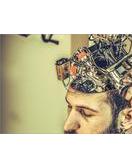Hearing loss is now one of the leading causes of disability worldwide, affecting more than six percent of the population. The impact on people’s lives is substantial; difficulty with communication, social functioning, feelings of social isolation, employment opportunities, and depression. There are still many unanswered questions on how life’s quality is affected for anyone who lives with moderate to profound hearing loss, whether from a rare disorder like superficial siderosis or age-related hearing loss. For all patients struggling with cognitive issues, hearing loss has been identified as the single most significant modifiable risk factor for slowing cognitive impairment.
The Danger Of Doing Nothing
While researchers have yet to identify why the hearing loss has such a strong link to cognitive decline, they are beginning to learn more about this connection. Some believe sensory deprivation may be a key factor. In the past, there were concerns that patients experiencing cognitive impairment might not be able to use the signal of a cochlear implant because of deficiencies in the central processing areas of their central nervous system. These past assumptions have renewed interest in understanding those cases in which cochlear implantation successfully stabilized or reversed a patient’s cognitive decline.
In cases of profound hearing loss, a natural reaction is to lip-read to help word recognition. This repeated behavior refocuses brain resources resulting in changes in the way the brain behaves.
Craig A. Buchman, MD, FACS
Lindburg Professor and Head
Otolaryngology—Head & Neck Surgery
In a report published in Neuron, investigators from Newcastle University’s Faculty of Medical Sciences suggest hearing disorders lead to increased brain degenerative problems. Lack of sound-related input results in not only a measurable amount of brain volume shrinkage but also impacts cognitive impairment, dementia, or Alzheimer’s progression. Sensory impairment refocuses brain resources to compensate for hearing loss making these resources unavailable for other tasks.
Superficial Siderosis Hearing Loss
95% of superficial siderosis patients will experience hearing problems because such a large portion of the eighth cranial nerve routes through a cistern filled with cerebrospinal fluid. The risk from free-iron to the central myelin and micro-glia is extreme. The damage to these specialized, impulse-conducting cells (neurons) resulting in neuronal loss to the eighth cranial nerve and possible vascular structure compression from gliosis is still considered irreversible. Some superficial siderosis patients have opted to undergo Cochlear implantation with varied results. Determining, pre-procedure, if the patient has intact and functioning brainstem auditory conduction has proven to be a good predictor of cochlear implant success.
SS patients who experience both hearing and cognitive impairment should consider combating sensory deprivation as long as they can through the use of specialized hearing aids or, in highly profound cases, with cochlear implantation.
Fortunate to have access to the latest available sensorineural hearing loss model, Gary is now on his fourth set of hearing aids in six years. He is one month into a change from his Resound hearing aids to a Phonak Audéo Paradise P90. A user can answer phone calls, stream or pause music, and activate Siri or Google assistance by simply double-tapping an ear. The built-in microphone allows hands-free calls without a phone in hand, a handy feature for the person who frequently falls outside when their phone is inside. Though this list barely touches all the features, his word and speech recognition have seen zero improvements for all the bells and whistles. There comes the point where even the most advanced technology fails to make a difference. His audiologist feels cochlear implantation should always be the last resort. Still, if there is any chance it would improve Gary’s quality of life and slow his cognitive decline, is it time to investigate our options?
The Question of Cochlear And MRI
Superficial siderosis patients undergoing chelation need regular MRIs to track hemosiderin. The need for regular scans was a concern when Gary had his pacemaker implanted. He has been on a chelation break this past year after the arrival of COVID postponed his active bleed repair, but he still has regular MRIs. Thankfully, his pacemaker model can be set to an MRI mode so he can still have regular scans. In the past, cochlear implantation has required surgery to remove the magnet before a patient could have an MRI. New technology has made the need for surgical removal obsolete. Cochlear Nucleus Profile™ Plus is one of the latest generations of cochlear implant offerings to provide MRI access at 1.5 T and 3.0 T with the magnet in place. Technology can be an incredible problem-solver.
Functional Deafness
What happens when hearing aids and cochlear implantation are no longer enough? It may depend on whether cognitive impairment is already an ongoing concern, but finding ways to exercise the mind is one strategy that may help keep the brain on track. There is an active debate between the value of learning speech-reading vs. sign language.
Speech-reading is lip-reading on the next level by watching the lips, tongue, teeth, cheeks, eyes, facial expressions, gestures, body language, and anything else that gives clues about what the person is saying solely on watching the speaker’s lips.
Only a third of spoken English is understandable by lip-reading. A person may spend years becoming a proficient lip-reader to have a simple over-sized mustache, unintentional downward glance, or face mask muddy the situation. Learning sign language expands a person’s linguistic skills and exercises brain cognition, but it takes two people who know sign language to hold a conversation. There are no easy answers.
The Future
An ongoing research study at the Ear Institute of Neurology, UCL, is currently investigating how superficial siderosis hearing problems impact patients’ quality of life. Dr. Natallia Kharytaniuk, Ph.D. student and study co-ordinator, is documenting the impact of hearing disability on the overall quality of life in superficial siderosis versus age-related hearing loss. If you would like to participate, there is still time to take part. The study is being conducted online and may be accessed through the Global Superficial Siderosis Patient Registry at superficialsiderosis.org.

